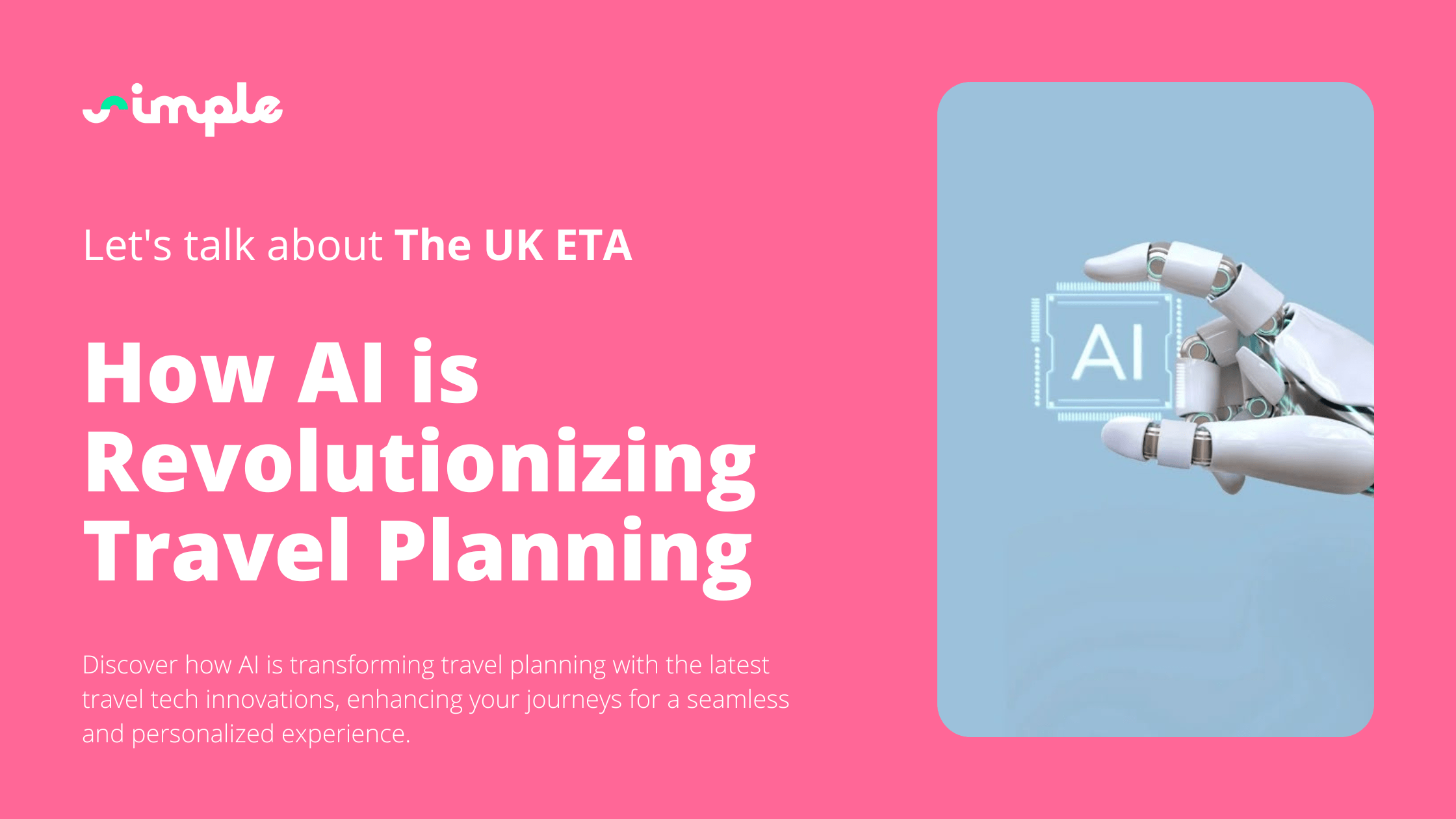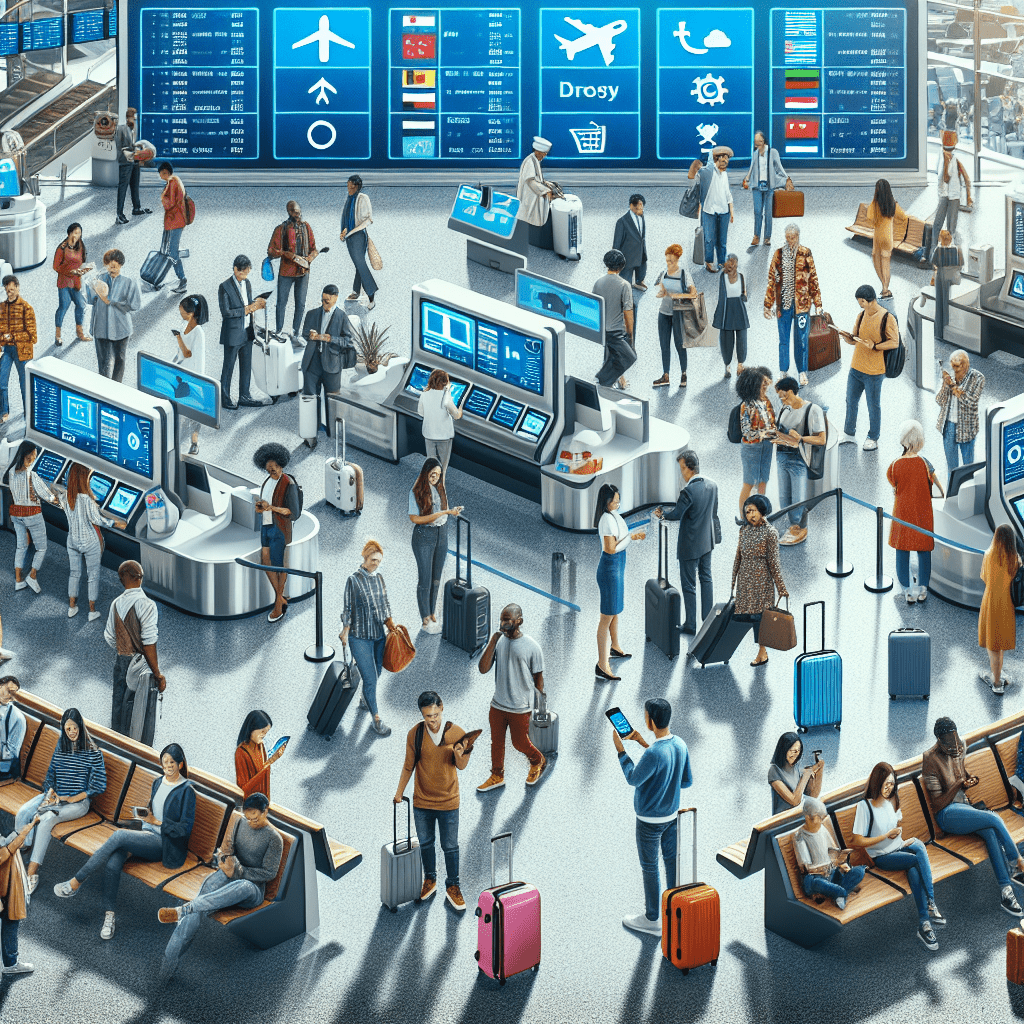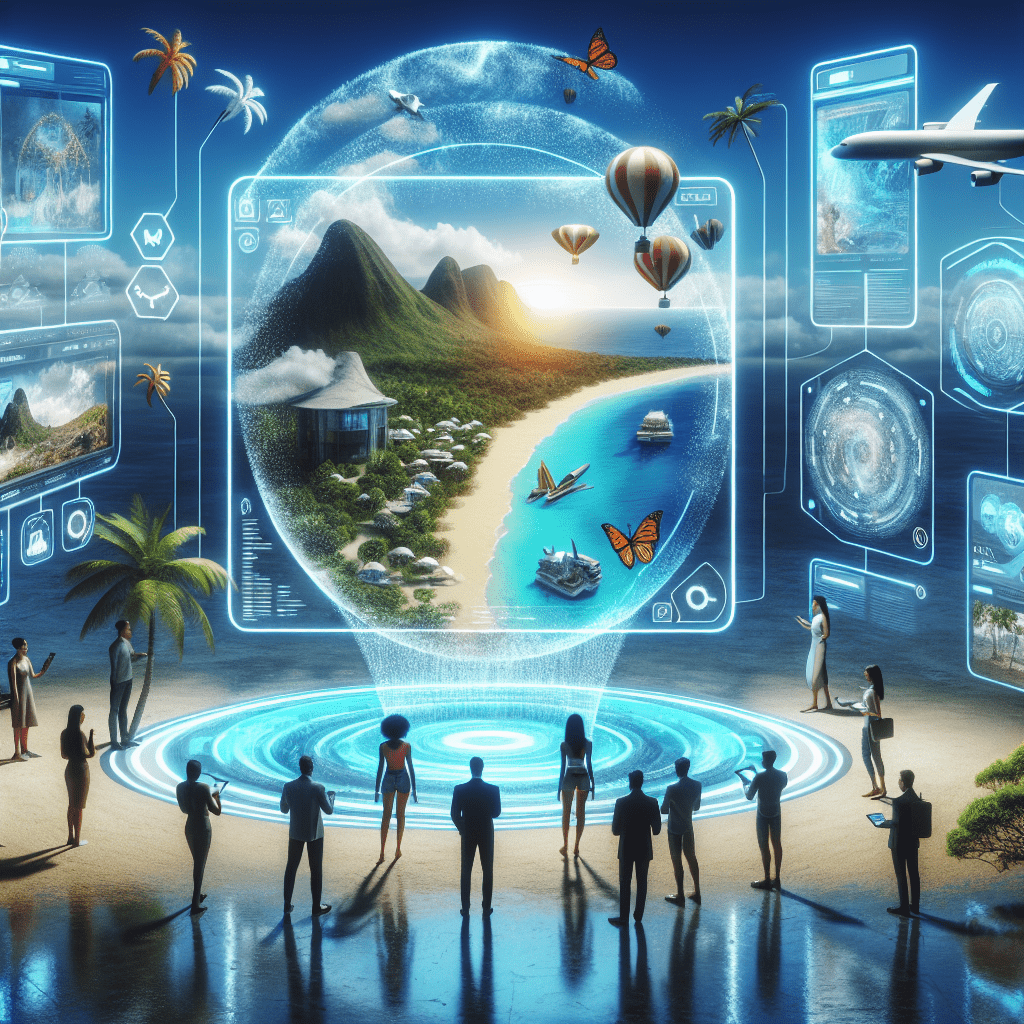How AI is Revolutionizing Travel Planning

Travel planning has undergone a significant transformation over the years. Gone are the days when travelers relied solely on guidebooks, travel agents, and word-of-mouth recommendations to plan their journeys. Today, the landscape of travel planning is being reshaped by cutting-edge technologies, with artificial intelligence (AI) leading the charge. The integration of AI into travel planning is not just a trend; it is a revolution that is redefining how we explore the world. From personalized recommendations to real-time updates, AI is making travel more efficient, enjoyable, and tailored to individual preferences.
The impact of AI on travel planning is profound, offering solutions that were once unimaginable. As digital travel solutions continue to evolve, AI stands at the forefront, driving innovations that enhance the travel experience. Understanding AI’s role in this transformation is crucial for anyone looking to make the most of their travel adventures. By leveraging AI, travelers can access smart travel apps and online booking platforms that streamline the planning process, ensuring a seamless journey from start to finish. For those interested in the broader scope of travel technology, exploring travel tech can provide further insights into how technology is shaping the future of travel.

AI in Destination Discovery
Personalized Recommendations
Artificial intelligence has revolutionized the way travelers discover new destinations by offering personalized recommendations that cater to individual preferences. Unlike traditional methods that often provided generic travel suggestions, AI algorithms analyze vast amounts of data, including user preferences, past travel history, and even social media activity, to curate tailored travel experiences. This shift from one-size-fits-all to customized travel suggestions is a game-changer for travelers seeking unique and memorable journeys.
By leveraging AI, travelers can receive recommendations that align with their interests, whether it’s exploring hidden gems in a bustling city or finding serene retreats in nature. These personalized suggestions are not only more relevant but also enhance the overall travel experience by introducing travelers to destinations they might not have considered otherwise. As AI continues to evolve, the accuracy and relevance of these recommendations are expected to improve, making travel planning more intuitive and enjoyable.
Virtual Travel Assistants
Virtual travel assistants, powered by AI, are becoming indispensable tools in trip planning. These AI chatbots are designed to assist travelers by providing instant responses to queries, offering suggestions, and even handling bookings. The efficiency of virtual travel assistants lies in their ability to process and analyze data quickly, ensuring that travelers receive accurate and timely information.
One of the key benefits of AI chatbots is their availability. Unlike human agents, virtual assistants are available 24/7, ready to assist travelers at any time of the day. This constant availability is particularly beneficial for handling last-minute changes or emergencies, providing peace of mind to travelers. Additionally, virtual travel assistants can manage multiple tasks simultaneously, from booking flights and accommodations to suggesting local attractions, making them a comprehensive solution for modern travel planning.
Influence on Last-Minute Travel Decisions
AI’s ability to analyze real-time data has a significant impact on last-minute travel decisions. With access to travel data analytics, AI systems can provide travelers with up-to-date information on flight availability, hotel vacancies, and even local events. This real-time data empowers travelers to make informed decisions quickly, enhancing spontaneity and flexibility in travel planning.
For those who enjoy spontaneous trips, AI offers opportunities to find the best deals and availability at the last minute. By analyzing current market trends and pricing, AI can identify cost-effective options that align with the traveler’s budget and preferences. This capability not only saves time but also ensures that travelers can seize opportunities for unique experiences without the stress of extensive planning.

Streamlining Travel Logistics
Flight and Accommodation Booking Advancements
The integration of AI into flight and accommodation booking systems has transformed the way travelers secure their travel arrangements. One of the most significant advancements is the use of AI in price prediction and comparison tools. These tools analyze historical data and current market trends to forecast price fluctuations, enabling travelers to book flights and accommodations at the most opportune times. This predictive capability not only helps travelers save money but also enhances the overall booking experience by providing transparency and confidence in decision-making.
Online booking platforms have also benefited from AI-driven enhancements, offering a more intuitive and user-friendly experience. By personalizing search results based on user preferences and past behavior, these platforms ensure that travelers can quickly find options that meet their specific needs. The seamless integration of AI into these platforms represents a significant leap forward in digital travel solutions, making the process of booking flights and accommodations more efficient and enjoyable.
Smart Itinerary Creation
Creating a travel itinerary that balances personal preferences with logistical constraints can be a daunting task. However, AI has simplified this process through the automation of schedule optimization. By analyzing a traveler’s preferences, available time, and logistical constraints, AI can generate a smart itinerary that maximizes the travel experience. This automation not only saves time but also ensures that travelers can enjoy a well-organized trip without the stress of manual planning.
Moreover, AI plays a crucial role in adapting travel plans in response to real-time updates, such as weather changes or local events. By continuously monitoring relevant data, AI systems can suggest itinerary adjustments that enhance the travel experience while minimizing disruptions. This adaptability is a testament to the power of AI in travel management software, offering travelers a dynamic and responsive planning tool that caters to their evolving needs.
Improved Travel Safety and Security
Safety and security are paramount concerns for travelers, and AI is making significant contributions in this area. Through advanced risk assessment applications, AI can analyze potential threats and provide travelers with timely alerts and recommendations. This proactive approach to safety ensures that travelers are well-informed and prepared to navigate potential risks during their journeys.
In addition to risk assessment, AI is instrumental in maintaining health protocols and safety guidelines, particularly in the context of global health challenges. By monitoring and analyzing data related to health regulations, AI systems can provide travelers with up-to-date information on safety measures and requirements. This capability not only enhances traveler confidence but also contributes to a safer and more secure travel environment. As travel technology trends continue to evolve, the role of AI in ensuring travel safety and security is expected to grow, offering travelers peace of mind as they explore the world.

Enhancing Traveler Experience
Virtual Reality (VR) and Augmented Reality (AR) for Planning
Virtual reality (VR) and augmented reality (AR) are transforming the way travelers plan their trips by offering immersive previews of destinations and experiences. These technologies allow travelers to explore potential destinations in a virtual environment, providing a realistic sense of what to expect. This immersive experience is particularly beneficial for those who want to ensure that a destination aligns with their expectations before committing to a trip.
The influence of VR and AR on the decision-making process is significant. By offering a virtual glimpse into a destination, travelers can make more informed choices about where to go and what to do. This capability not only enhances the planning process but also increases traveler satisfaction by reducing the likelihood of disappointment upon arrival. As travel tech innovations continue to advance, the integration of VR and AR into travel planning is expected to become more widespread, offering travelers a powerful tool for exploring the world from the comfort of their homes.
AI-Driven Language Translation and Communication Tools
Language barriers have long been a challenge for travelers, but AI-driven language translation and communication tools are providing effective solutions. These technologies facilitate smoother interactions abroad by offering real-time translation services that bridge the gap between different languages. Whether it’s ordering food at a local restaurant or asking for directions, AI-powered translation tools ensure that language is no longer a barrier to meaningful travel experiences.
In addition to translation, AI-driven communication tools enhance the travel experience by providing context-aware suggestions and responses. By understanding the nuances of language and culture, these tools offer more accurate and relevant translations, making interactions more natural and enjoyable. As mobile travel applications continue to evolve, the integration of advanced language translation capabilities is set to become a standard feature, further enhancing the global travel experience.
Sustainable Travel Initiatives
Sustainability is an increasingly important consideration for travelers, and AI is playing a crucial role in promoting eco-friendly travel options. By analyzing travel data analytics, AI can identify sustainable travel practices and recommend eco-friendly alternatives to traditional travel methods. This includes suggesting public transportation options, highlighting eco-conscious accommodations, and promoting activities that have a minimal environmental impact.
AI’s role in encouraging conscious and responsible travel practices extends beyond recommendations. By providing travelers with information on the environmental impact of their choices, AI empowers them to make informed decisions that align with their values. This focus on sustainability is not only beneficial for the environment but also enhances the travel experience by fostering a deeper connection with the destinations visited. As travel technology trends continue to prioritize sustainability, AI’s contribution to promoting responsible travel is expected to grow, offering travelers the opportunity to explore the world in a more mindful and eco-friendly way.
Simplify Your Visa with Simplevisa
Fast, easy visa applications online
As AI transforms the travel industry, it’s also revolutionizing essential aspects like visa applications. Just as AI personalizes travel recommendations and streamlines bookings, Simplevisa simplifies your visa application process. We harness digital solutions to make applying for your visa as seamless and efficient as possible. Without an app, simply visit our website at simplevisa.net to easily submit your visa application, track its progress, and receive it hassle-free. Embrace the future of travel planning and let Simplevisa take care of your visa needs while you focus on your next adventure.
Conclusion

The transformation of travel planning through AI has ushered in a new era of efficiency and personalization. By harnessing the power of AI, travelers now enjoy a streamlined planning process that caters to their unique preferences and needs. From personalized recommendations and smart itinerary creation to enhanced safety measures, AI has redefined the travel experience, making it more accessible and enjoyable for everyone. The integration of AI into travel tech innovations has not only improved the logistical aspects of travel but also enriched the overall journey by offering tailored experiences that resonate with individual travelers.
As AI continues to evolve, its impact on the travel industry is poised to grow even further. Future advancements hold the promise of even greater personalization, with AI systems becoming more adept at understanding and anticipating traveler needs. The potential for AI to revolutionize travel planning is vast, with possibilities ranging from more sophisticated virtual travel experiences to enhanced travel payment solutions that simplify transactions. As travel technology trends continue to develop, the role of AI in shaping the future of travel is undeniable, offering exciting opportunities for innovation and growth.
Looking ahead, the continued evolution of AI in the travel industry will likely lead to new and innovative solutions that further enhance the travel experience. As AI systems become more advanced, travelers can expect even more seamless and intuitive planning processes, with AI-driven tools offering unprecedented levels of convenience and personalization. The future of travel planning is bright, with AI at the forefront of this exciting transformation, paving the way for a new era of exploration and discovery.